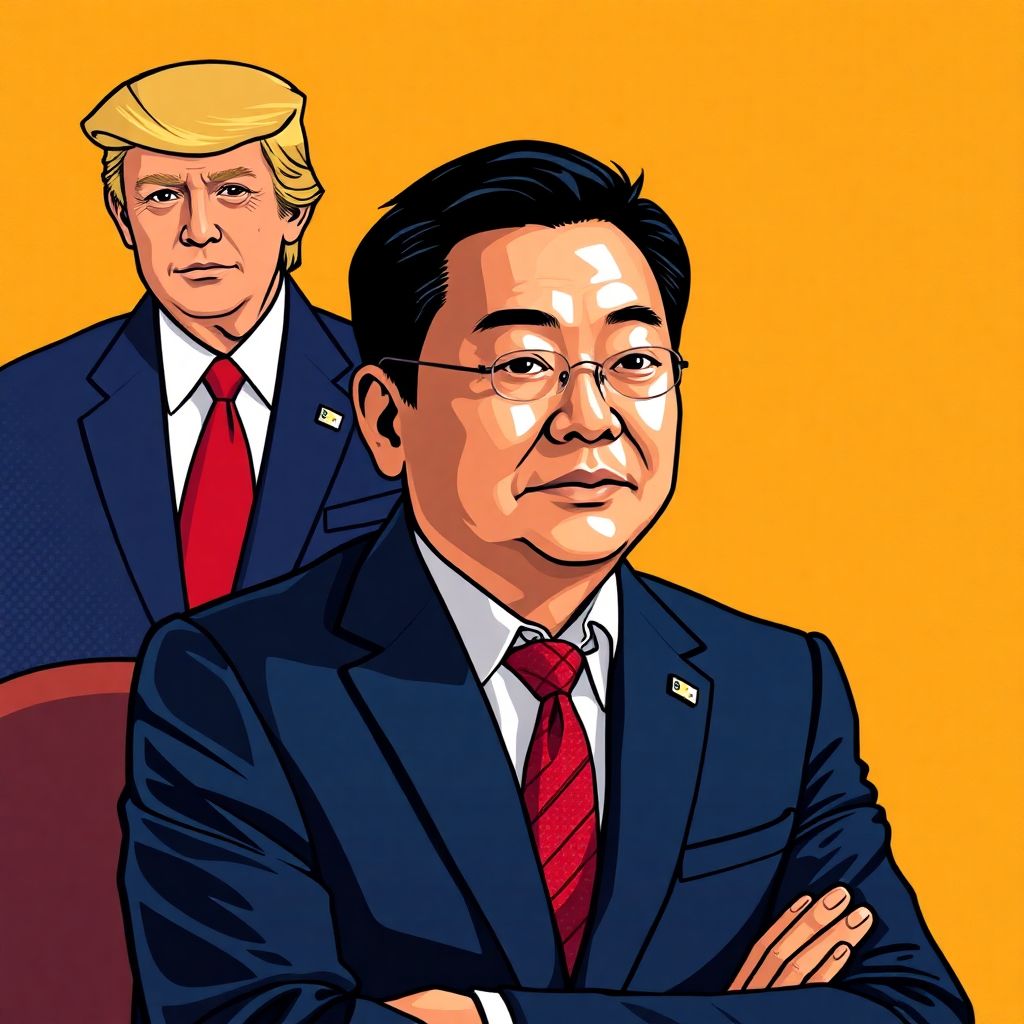Binance co-founder Changpeng Zhao, widely known as CZ, has firmly denied any personal or business connections with former U.S. President Donald Trump or his family, following widespread speculation surrounding the presidential pardon he received. In a recent interview, CZ addressed the controversy, stating he was taken aback by the pardon and emphasizing there were no backdoor deals or undisclosed relationships that influenced the decision.
CZ clarified that he had never met or spoken with Donald Trump, either before or after the October pardon. The only interaction he acknowledged with anyone from the Trump family was a brief meeting with Eric Trump during the Bitcoin Middle East and North Africa conference in Abu Dhabi. “There is no business relationship between me, Binance, and World Liberty Finance,” CZ stated firmly, referring to a company allegedly linked to the Trump family and at the center of some of the accusations.
The pardon has ignited a heated political debate. While many in the crypto community hailed it as a victory against what they perceive as the anti-crypto stance of the Biden administration, critics — particularly from the Democratic Party — accused Trump of corrupt motives. Some lawmakers argue the pardon may have been part of a “pay-to-play” scheme, suggesting CZ’s release was exchanged for potential financial contributions to Trump-affiliated ventures.
Former President Trump, during a press briefing, maintained that he had no personal relationship with CZ and that the decision to pardon him was based on recommendations and the belief that Zhao had been unfairly targeted. “He had a lot of support, and they said that what he did is not even a crime,” Trump said. “He was persecuted by the Biden administration.”
Despite Trump’s defense, Democratic Representative Maxine Waters accused the former president of using his pardon power for personal gain. She claimed the pardon was tied to crypto investments in platforms associated with Trump and his allies, including World Liberty Financial. This prompted a group of Democratic lawmakers — among them Senators Elizabeth Warren and Bernie Sanders — to demand an investigation. They wrote an open letter to Attorney General Pam Bondi, calling for a thorough inquiry into the circumstances surrounding the pardon.
The controversy has added to the already polarized discourse around crypto regulation and political influence. Many observers argue that the case highlights the growing intersection of digital finance and politics, where regulatory decisions can be swayed by ideological agendas or political alliances.
CZ, who stepped down from his role as CEO of Binance amid legal pressures in the U.S., has maintained that his legal troubles were politically motivated rather than rooted in criminal misconduct. His supporters echo this sentiment, arguing that regulatory bodies under the Biden administration unfairly targeted crypto firms and leaders as part of a broader crackdown on decentralized finance.
The debate over CZ’s pardon also reflects broader concerns about the integrity of the presidential pardon process. Critics argue that it has become increasingly susceptible to misuse, especially when used in ways that appear to benefit political allies or donors. The lack of transparency in how pardons are granted has fueled calls for reform and oversight.
From a legal standpoint, CZ’s case raises questions about the boundaries of executive power and the role of lobbying in influencing high-level decisions. While presidential pardons are constitutionally protected and require no explanation, their use in high-profile cases involving billion-dollar industries inevitably draws scrutiny.
For the cryptocurrency sector, the situation represents both a challenge and an opportunity. On one hand, the negative press and political accusations cast a shadow over the industry’s push for legitimacy. On the other, the pardon has reinvigorated calls for clearer, more consistent regulations that offer protection without stifling innovation.
In the wake of the controversy, Binance has attempted to distance itself from the political storm. The company reiterated that its operations are independent of any political affiliations and that its leadership continues to cooperate with global regulators to ensure compliance.
CZ, meanwhile, has remained largely out of the public eye, focusing on personal projects and advisory work in the crypto space. He has expressed interest in supporting blockchain-based educational initiatives and startups, signaling a shift in his role from corporate executive to industry mentor.
As the dust settles, the question remains: was CZ’s pardon a genuine correction of a politically motivated prosecution, or a transactional move emblematic of deeper issues in American political and financial systems? While the truth may be complex, one thing is clear — the intersection of cryptocurrency and politics is now more visible and contentious than ever.
In this evolving landscape, transparency, accountability, and regulatory clarity will be crucial not only for rebuilding public trust but also for ensuring that the crypto industry can thrive on solid ethical and legal foundations.

